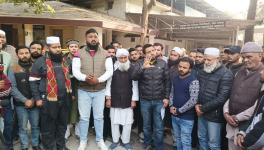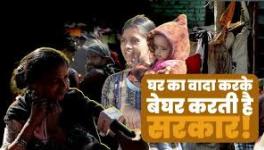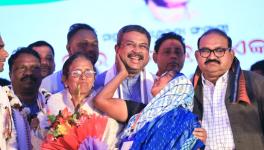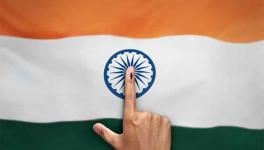Rajasthan Elections: Muslim Political Representation a big Question
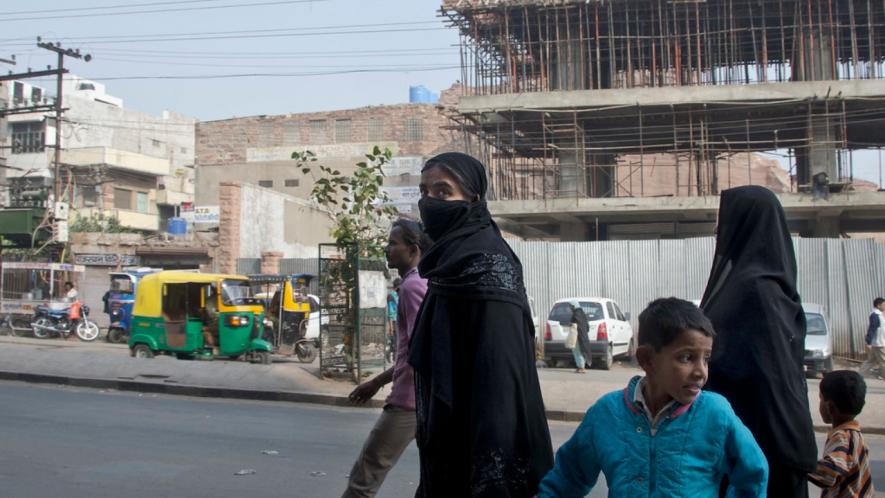
Representation image. | Image courtesy: Flickr
From Prime Minister Narendra Modi to Chief Minister Ashok Gehlot, political leaders of national parties –Bharatiya Janata Party and Congress -- are actively seeking Muslim support in Rajasthan. However, the issue of proportional ticket distribution for the Muslim community remains unaddressed.
Recently, Assam Chief Minister Himanta Biswa Sharma, labelled a ‘firebrand’ leader by BJP, openly declared a focus on Hindu politics. Yogi Adityanath, another firebrand Hindutva leader and Chief Minister of Uttar Pradesh, had raised the "80 vs 20" (80% Hindu population vs 20% Muslims) slogan during the last state elections.
However, questions arise about the impact of such statements on communal harmony. Despite in the country. Prime Minister Modi has been talking about the “development of all 145 crore citizens”, but statements like "Hindu politics" and "80 vs 20” made by top BJP leaders raise questions about the sincerity of such statements made by the PM and their impact on elections. Interestingly, Modi is campaigning in Muslim-dominated areas of Rajasthan, but the BJP's candidate list lacks Muslim representation.
Before the election campaign concludes on November 23, Prime Minister Modi visited Muslim-majority seats in Jaipur, highlighting the significance of these areas. For instance, the Hawa Mahal constituency, once a BJP stronghold, is now a key focus for both parties.
Despite a Muslim majority in the area, BJP has fielded Mahant Balmukund Acharya in Hawa Mahal. Congress, aware of Muslim influence in the elections, has sought support for the Aam Aadmi Party (AAP) candidate Pappu Qureshi. Hawa Mahal, with 2,54,373 voters, has a significant minority population.
Overall, both major parties seem to have placed their bets on brahmin candidates.
In Rajasthan, where Muslims constitute 10% of the population, BJP aims to enlist 40,000 Muslim supporters under the "Modi Mitra" scheme.
The incumbent Congress, while fielding Muslim candidates, is, however, adhering to a thin line of soft Hindutva. Despite a 10% Muslim population, it has allocated only 15 out of 20 expected tickets, raising concerns about ‘political justice’ for Muslims.
Both BJP and Congress have made promises to Muslims in the past five years, but with limited implementation on the ground. Congress focused on last-minute appointments for the Waqf Board and Madarsa Board, neglecting sustained efforts for Muslim welfare.
In these elections, key Muslim candidates from Congress, Bahujan Samaj Party (BSP), and All India Majlis-E-Ittehadul Muslimeen (AIMIM) are vying for seats in Muslim-dominated constituencies. Notably, the BJP has not fielded any Muslim candidates, and the exclusion of former minister Yunus Khan, considered close to former Chief Minister Vasundhara Raje, could impact the party's prospects.
In sum, the political landscape in Rajasthan raises questions about the true commitment of the two national parties to Muslim representation, with both major parties adopting strategies that may not align with the development needs of the Muslim community. Only time will reveal the impact of these political manoeuvres.
Get the latest reports & analysis with people's perspective on Protests, movements & deep analytical videos, discussions of the current affairs in your Telegram app. Subscribe to NewsClick's Telegram channel & get Real-Time updates on stories, as they get published on our website.










